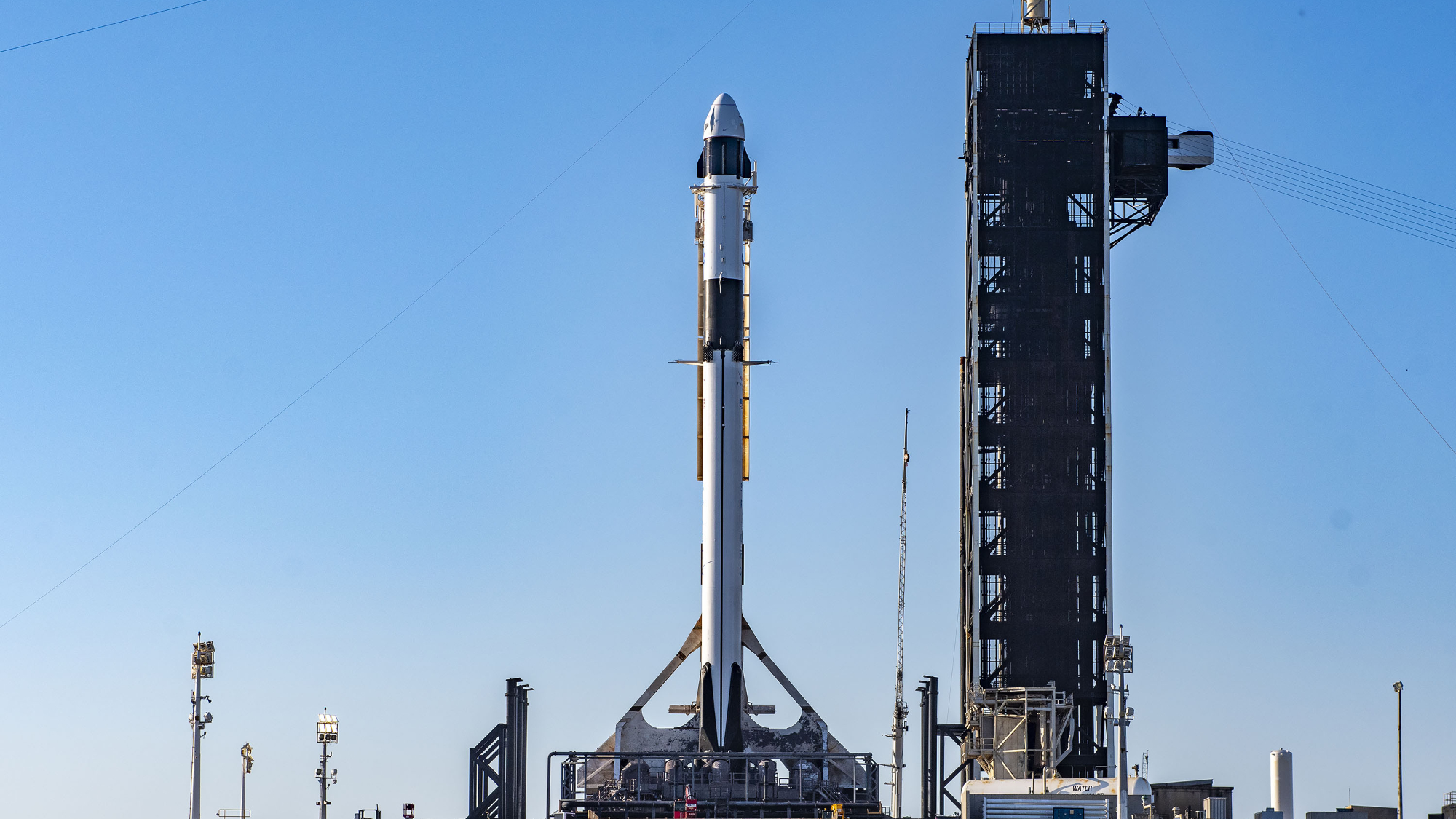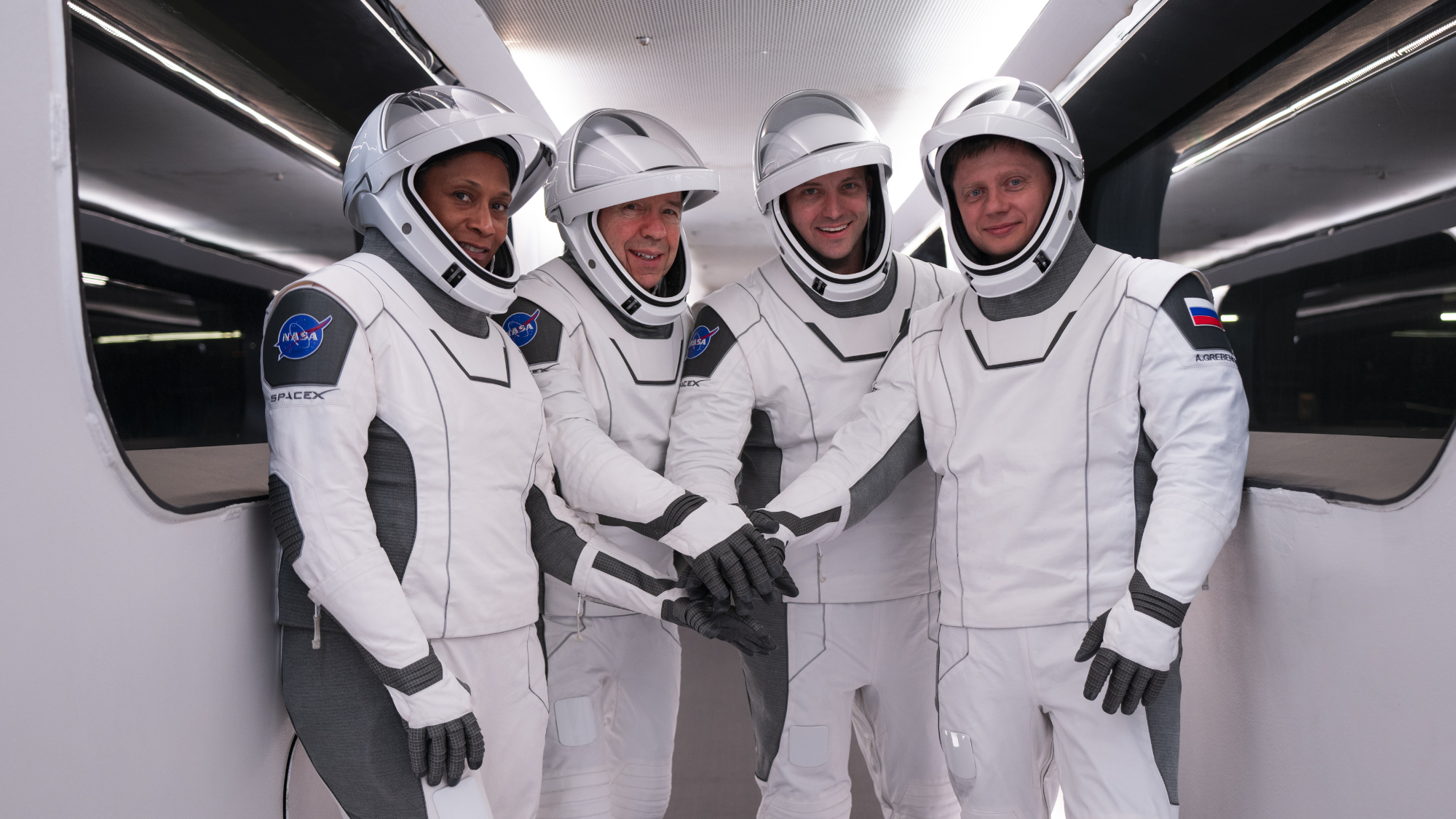
SpaceX has delayed its first NASA astronaut launch of 2024 to no earlier than Saturday (March 2) due to offshore weather concerns near the mission's Florida launch site.
The four-astronaut SpaceX mission, called Crew-8, will now lift off on a Falcon 9 rocket no earlier than Saturday night at 11:16 p.m. EST (0416 on March 3 GMT) from Pad 39A of the U.S. space agency's Kennedy Space Center in Cape Canaveral. It's the latest schedule slip for the launch, which was initially given a Feb. 22 launch date.
Read more: SpaceX Crew-8 astronaut mission: Live updates
"Joint teams selected the updated launch opportunity due to unfavorable weather conditions forecast for Friday, March 1, in offshore areas along the flight track of the Dragon spacecraft," NASA wrote in a mission update just after midnight on Feb. 29. "High wind and waves along the eastern seaboard have been observed and are forecast to continue through Saturday morning."
Unsteady sea conditions could pose safety concern for recovery teams if SpaceX's Dragon capsule suffers a launch emergency that forces the capsule to abort in mid-flight and splashdown in the cold waters of the Atlantic Ocean.
"In the unlikely case of an abort during launch or the flight of Dragon, the wind and wave conditions must be within acceptable conditions for the safe recovery of the crew and spacecraft," NASA officials wrote in the update.

SpaceX's Crew-8 mission will launch NASA astronauts Matthew Dominick, Michael Barratt, Jeanette Epps, and Russian cosmonaut Alexander Grebenkin to the International Space Station to begin a six-month mission in orbit. The astronauts are due to return to Earth in late August.
NASA and SpaceX initially hoped to launch the Crew-8 mission on Feb. 22, but delayed it to Feb. 28, then to just after midnight on March 1, to allow more time between an earlier SpaceX launch on Feb. 18 from the same pad.
Crew-8 will mark SpaceX's ninth crewed flight for NASA under a multi-billion-dollar agreement to fly astronauts to and from the space station. SpaceX has been flying astronaut missions for NASA since May 2020. A second company, Boeing, is expected to begin its own crewed flights for NASA in April using its own Starliner spacecraft.







